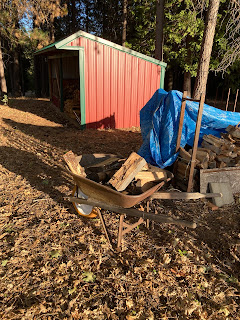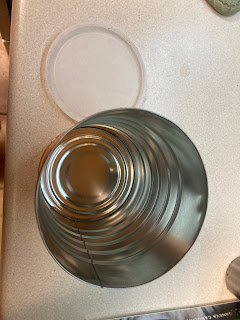Friends,
I have taken the liberty of presenting my eulogy for TB the Elder today. It is a little long - perhaps too long for an ordinary blog post - but I feel compelled to share it, if for no other reason the closure that it will bring. In a very real way, you, the readers of this blog, have been my support group over the last two and a bit years as I we have walked this journey to its inevitable conclusion. I appreciate that, both for the support as well as ability to write what I cannot always say.
In this, perhaps, blogging and the anonymity it can grant makes such things a bit easier. The names and locations are changed below, in some cases to places that readers will know in a way the hearers will not, but the content and feelings remain the same.
--------
On behalf of my
and my sister’s families and of course my
mother, we would like to thank you for taking the time to be with us
today in memory of our father and grandfather. It means a great deal
that you would take time out of your lives to honor him.
It puzzling place to be in, the giving of a memorial speech for one’s
parent. What does one say, precisely? As children, we see a
specific part of our parents’ lives: there is a whole history that
goes on before we arrive, there is a background history that goes on
that we are unaware of as we grow up, and then there is the final
history where as we go on to have our own lives, and our parents once
again have their own.
That said, I can only give you my story of him: of how I saw him, my
relationship to him, and what he taught me.
My father was a complex man, something I at least did not come to
realize until
years after I had left home. I certainly did not
realize it when I was growing up. I do not know that he always
appreciated his complexity or if he did, he kept it quietly walled
off in a place that most people never saw.
His formative years were far different than the experience he gave
myself and my sister growing up. We lived in the same house our
whole lives provided for by parents that essentially had the same job
our entire time at home; he had a life of moving first from the
state of his birth and then to what became his home in different
locations, following agricultural jobs. We had
no major trauma; he lost his brother before he was ten years old and
in some ways my mother alluded to but never really fleshed out, was
on his own to deal with internally it as his father took care of his
mother and his older brother took care of his siblings.
He would not ever really speak of growing up much until years and
years later, when we would be driving around to towns
in the local area. He would direct me down
certain roads and point out houses to me: his grandparents lived
there, his one aunt and uncle lived there and the others there. When
they moved closer to my
hometown they lived there, where the equipment
yard was on the old state highway now stands; a field with a
remaining tree or two used to be a fruit orchard and there a
bunkhouse that he and his older brother shared.
On the
meeting of my mother, my father was fairly
elusive. If there was a story, he never revealed it. This was a
tendency he tended to have as well, this keeping of background which,
when it came out, always made for a much fuller view of my father.
One prime example that comes to mind is the one birthday of my sister
where we had both lost a cat and I have rear ended someone the same
day. We sat there quietly at our birthday dinner out in a
restaurant, and conversation dragged a bit. At one point my father
made the comment he would have had more words had it not been my
sister’s birthday. Then, out of the blue, my mother trots out “Did
your father ever tell you about the time he took his older
brother’s car without telling him and totaled
it?”
“No Mom, no he did not”. Suddenly the mood of the table changed:
this was not an isolated event, this was family history.
My mother always seemed to know this about my father, this ability to
regulate his mood and reset the tone. I have no idea if this was
something she did instinctively or had come to it by practice:
again, the years of their marriage until my and my sister’s birth
were also shrouded in mystery, with vague tales of living others
exotic locations like neighboring states and pets we never met and a
blank between my father’ s entry into the Navy and their settling
at the house we grew up at. I suppose – like most things – they
felt it had no significant bearing on their lives as we knew them,
although like most children, I confess to a certain sort of curiosity
of what my parents were like when they were young. After all, the
younger stories are often the more exciting ones.
He always wanted better – for my mother, for his children, for his
grandchildren. He never went to college beyond a single day (at
which point he joined the Navy instead), but the fact that we were
going to college was never discussed; it was simply assumed. He
never verbalized why, although I would guess grow up at the mercy of
crops and years digging trenches and running lines made him desire
differently for his children. For over 30 years he got up early,
worked late and never really mentioned it.
And he was supportive of his children – financially
of course but also in their interests and
activities. I do not believe my father missed a single game, event,
or activity that myself or my sister participated in and, when the
grandchildren came along, he did the same. Even if I suspect he did
not always understand or possibly enjoy
everything we did, he came anyway.
I would tell you he was not an outwardly affectionate man, but that
is only the view of his son. Perhaps like most grandparents, the
experience with his grandchildren was not the experience that we had
growing up with him – sometimes to the point that both my sister
and I would look at each other and mouth “This is not the man we
grew up with”.
I learned things from my father – we all hopefully do from our
parents of course. Some things are instinctive and personality
driven – an expression or a turn of phrase that makes me suddenly
react and go “Good Lord! I’ve
become my father!”. But other things are much
more conscious conclusions, things that we knowingly adapt as they
are modeled for us.
My father seemed to know a great deal about a great deal, although he
would always insist that he really knew nothing. He built fences and
chicken coops and decks but was no carpenter, performed car
maintenance though he was no mechanic, helped herd cattle and feed
them and bury one or two, though he was no farmer, and became quite a
margarita maker though he was no bartender. He always seemed willing
to try anything and usually was a lot more successful than he let on.
From this, I learned that I can do almost anything, at least once.
My father eventually did come to grips with the trauma of his
childhood. I still remember the day that we had that conversation
about his depression and what he was doing about it. From this, I
learned that it is never too late to deal with your past.
My father, who was never a reader, suddenly developed a taste for
books after he retired. His tastes ran different than mine –
sports stories, World War II biographies – but for a man who had
never read much more than newspapers or magazines
when I was growing up, it was as complete an
interest change as one can have. From this, I learned it is never
to late to start – or keep – learning.
My father was devoted to my mother his whole life and, after her
diagnosis of Alzheimer’s in 2015, became her primary caregiver,
becoming responsible for the mass of ordinary tasks that she had done
for years and making sure that doctor’s appointments, medicines and
the like were all attended to. As my mother’s memory became less
and less, he coped with continuing to care with a person that was
less and less the person he had married. My mother enjoyed drives,
so every day they would take a short drive somewhere. It did not
matter where: she did not remember they had been there the day
after, and he liked to drive. They would go out to lunch somewhere –
McDonald’s, Chick-Fil-A, local diners that they had found over the
years – and then drive home. He cared for her up to the point of
moving her in to a care facility; only a few days later, he himself
had a stroke as if his body and mind, knowing that they had done what
needed doing, finally just gave out. From this, I learned and
relearned commitment.
After my family’s move from Old Home to New Home, I would call to
speak with my parents. I called during the drive home from my
martial arts class. Over the years that day changed – sometimes
Monday, sometimes Thursday, but mostly Tuesday. Every week for
years, I would call at 7:15 or so their local time. The
conversation would always start out the same “Hold on, let me go
get the other phone –say hello” he would tell my mother as he
would get the phone, and we would start talking.
Our talks would be of the most ordinary sorts of things, week after
week: The weather. What the grandchildren were doing. The price of
gas. What was happening at The Ranch. The quiet things of routine.
And that, perhaps, was the greatest lesson I learned from my father:
that even in an ordinary life, there is a simple and quiet greatness
to be found.

















